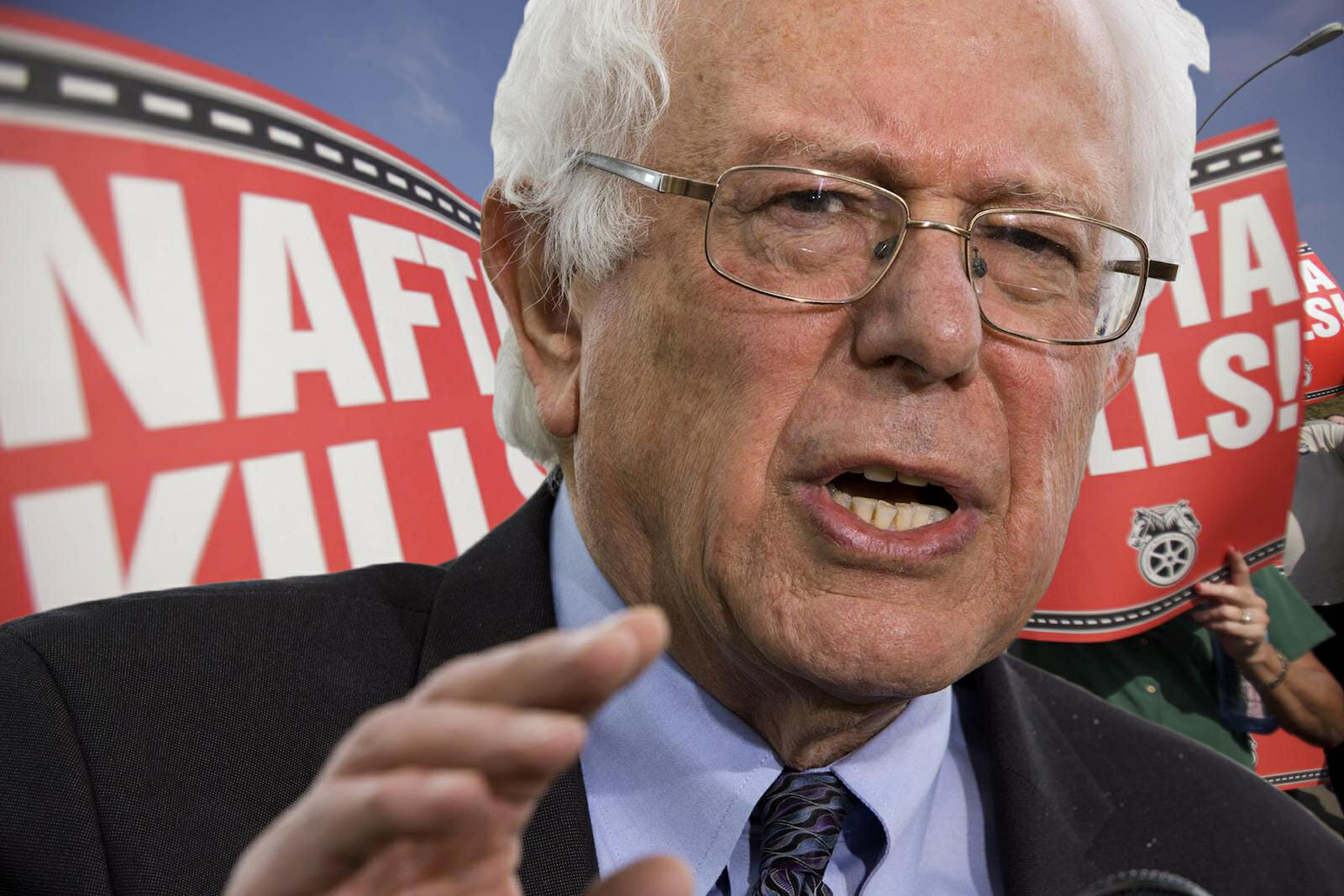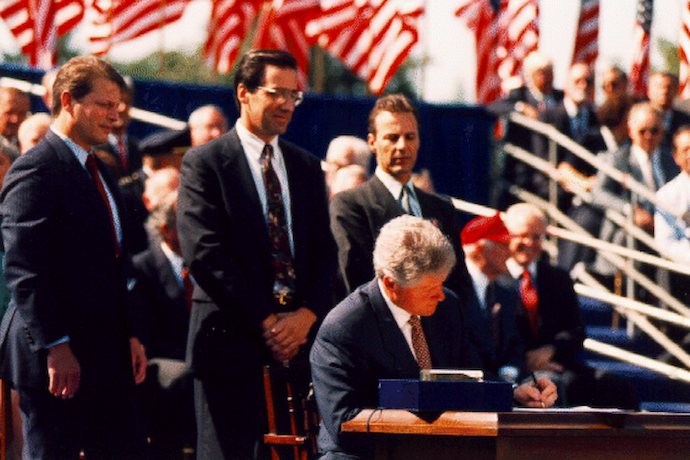
Politics
Why Millennials Must Change Their Mind on Trade
History will remember the oversight of popular sentiment for American isolationism in the 21st century as one of the key mistakes of the American political system. The “unprecedented” trend towards isolationism in the United States is not unprecedented at all. Following World War I and the Great Depression, a majority of Americans were in favor of a more domestic America, focused on internal issues rather than foreign ones. It was not until the establishment of the post-WWII global world order by the United States, that generations championed the global defense of freedom, enterprise, and democracy.
Two decades of failed foreign endeavors in the Middle East and a recovering economy has left a sour taste in the mouth of many young Americans, who echo sentiments 100-years old. Those who, like myself, grew up watching the bombing of Baghdad in post-911 America, have all but lost interest in America’s global leadership. Yet, what many millennials must now grapple with, in lieu of the most isolationist election in recent history, will be how their views on the global economy and trade, contradicts their views on social justice and innovation.
Young voters in the United States have grown up during the worst economic recession since the 1930’s; an experience which has stigmatized large corporations and pushed voters to the left on issues such as trade. Bernie Sander’s political movement, which captivated the attention of millions of millennials across the country, endorsed Bernie’s long held anti-capitalist views of the 1960’s and 1970’s. His views against trade agreements such as NAFTA and the TPP, stem from a pushback of U.S foreign policy during the Cold War and for protection of the American blue-collar worker.
Yet, many anti-trade millennials do not identify with blue-collar workers and are, in many cases, college educated. Their appeal for Bernie’s rhetoric thrives in a distrust of large corporations who “ship” jobs overseas and influence domestic policy. Further, and in spite of the harsh criticism for trade amongst 18-35 year olds, their views on social justice, equality, and innovation are all supported by a more integrated economy, not a more isolated one.
There is no place where the dichotomy is better exemplified than by the generation’s interest in social justice and global awareness. Global consciousness by millennial consumers and commitment to global poverty reduction elevates concerns of understanding within the emerging world.

In fact, today there are less people living in poverty around the world than at any time in human history. In large part, this phenomenon has been driven by globalization and trade. Latin America is a great example of this trend. Countries, such as Chile, who have opened up to trade enjoy a higher standard of living than those countries, like Venezuela, who have not. What’s more, a popular critique of trade is the outsourcing of jobs to low wage countries, who often times abuse workers. Though the abuse of workers is intolerable, the issues lie mostly with internal country governance. In other words, to change the lack of workplace regulations, the domestic government must have the political will to make these changes. Regional integration and trade agreements reach these goals. Provisions of the TPP, for instance, establish guidelines for labor regulations, designed to maintain an international standard for workers while encouraging commerce. As workers earn more and the middle class expands, the demands of the populace force governance reform. Moreover, the geopolitical implication of the TPP would further this cause. China has repeatedly neglected international standards for labor reform and currency manipulation. By establishing a new standard for trade, China will be forced to comply with new regulations to take part in the gains of commerce.
Within the United States, trade is essential for a strong middle class and easier social mobility. Access to a myriad of goods and technology from around the world drive prices down for consumers, encourage entrepreneurship, and help small businesses. Three-fourths of the American economy depends on a healthy middle class and a strong consumption base. The American dependence on consumption can only be helped by low-cost goods that enter the American market, including technology that millennials use at record breaking rates.
Though there is global shift outwards for American manufacturing to other countries, these changes benefit the American worker in the long run. America has long championed the service economy, which provides higher paying jobs and gives more Americans the opportunity to climb the social ladder. Policies advocating for inward looking trade policies have not factored in the relatively high wages in the U.S, or trends towards automatization. The cost of production for goods in the U.S would ultimately fall on the American consumer, while automatization would limit the amount of workers employed. It is largely due to NAFTA, for example, that the automotive sector in the United States has made a comeback. The declining industry saw a revival as integrated supply chains allowed jobs to return to states like Michigan. Shared production, because of NAFTA, has allowed for 40 cents on every dollar of Mexican exports to be American made.
Moreover, millennial anti-trade sentiment contradicts a strong desire for cultural understanding and exchange, travel and communication. A more interconnected global economy encourages these preferences. Brexit, for instance, has dampened the prospects of continued cheap airfare from the UK to Europe. In large part, this is because the European single market did away with bilateral restrictions on air service agreements. With these barriers, opportunities for travel are reduced and complicated, while higher prices again hurt consumers.
Millennials must continue to join the conversation on trade. While young people today are shaping to be the most educated generation, they are still the most uninformed on global affairs. A Pew Poll conducted last year found that millennial knowledge on global issues rank the worst amongst all age categories. There should be a constructive dialogue to encourage young voters to see the benefits of trade and how it is applicable to their daily lives. Millennials are pushing the political dialogue and can now determine elections. Their love for technology and social progressivism beg for more trade, not less.

